“I spent some huge cash on booze, birds and quick vehicles. The remaining I simply squandered.”— George Finest
The Northern Eire footballer’s well-known quip is much less surprising than the massive variety of athletes and celebrities it applies to. Younger males of their bodily prime on the receiving finish of truckloads of cash–aching to flee the self-discipline and self-sacrifice that outline an expert competitor’s life–can and do develop a style for extra and overindulgence. Add a wholesome dose of poverty and deprivation to that younger man’s background, and stand again to see what occurs. It’s certain to be spectacular.
A chief instance of that is Ruben “El Puas” Olivares, often named as each the most effective bantamweights of all time and one of many biggest ring warriors to ever emerge from the previous Aztec Empire referred to as Mexico. Olivares was a drive of nature, terrorizing the rooster division throughout the late 60s and early 70s, although to be truthful, it was his left hook that did many of the terrorizing. The prodigal son of Mexico Metropolis’s “La Bondojo” barrio aquired a fame as each a fearless warrior and an insatiable get together animal, earlier than ultimately being hailed by many as Mexico’s all-time biggest boxer.
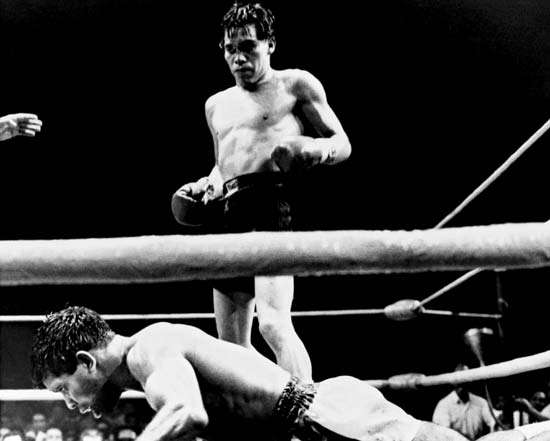
Olivares’ ring success was such that it could come to alter the very face of boxing itself. His charisma and recognition melded with a few record-setting strings of consecutive knockouts to deliver deserved consideration to the decrease weight lessons at a time after they had been typically uncared for. As Bert Sugar put it, “the Ruben Olivares we bear in mind is the bantamweight with a left hook which arose from the identical boxing gene pool as these thrown by heavyweights Jack Dempsey and Joe Frazier.” In a stacked 118 pound division, Olivares ran up a file of 57-0-1 earlier than he first tasted defeat. Ultimately, he had fought over 100 professional bouts, scoring 79 knockouts and turning into world champion at bantamweight and featherweight, twice at every weight.
However stats can solely accomplish that a lot on the subject of conveying the legacy of a legend. Simply as vital is the truth that Olivares–gregarious and relatable, barrio-loving and profligate–was idolized by 1000’s of Mexican and Latino followers who flocked to his most important occasions in California. However this adulation was impressed by one thing greater than his prowess contained in the ring. As Nigel Collins said, Olivares “was extraordinarily widespread with the followers as a result of he might get together as laborious as he might punch.” In each Mexico and California, Ruben was famend for his ingesting, womanizing, and being all the time on the transfer. Or as Sugar put it, he grew to become “a glutton of the great life, discovering a large curriculum of diversions to fill his time” when he wasn’t slinging leather-based and leaving opponents recumbent on the canvas.
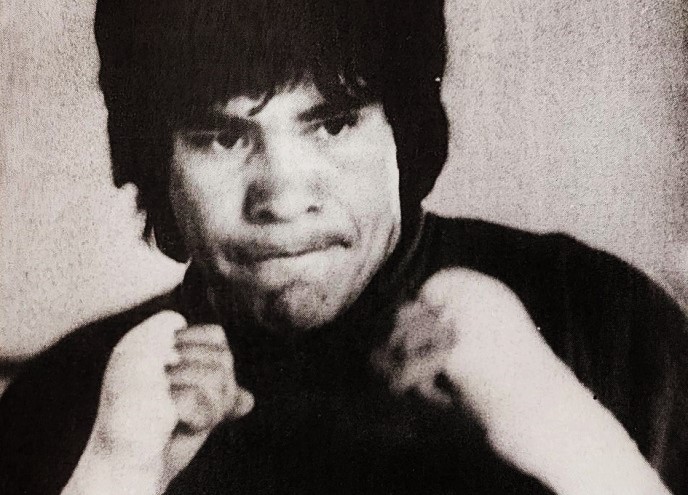
By the summer season of 1976 and on the age of 29, Ruben Olivares had gained and misplaced all 4 of his world titles, and each his unhealthy appetites and the grueling calls for of his career had been colluding in opposition to him. He was scheduled to face Paget Lupikanete, the supposed featherweight champion of Thailand, on the Los Angeles Sports activities Area, the match billed as step one in a historic fifth championship run. In reality, Lupikanete was a fastidiously chosen “gimme” opponent as this was Ruben’s first ring look after each a six month hiatus, the longest in his profession as much as that time, and back-to-back defeats. David Kotey had taken his WBC featherweight title by determination earlier than he had suffered a painful TKO loss to Danny “Little Pink” Lopez three months later. However regardless of these setbacks, Olivares’ remained a scorching commodity in boxing-crazed, Latino-packed California.
Within the construct as much as his return, Olivares was approached by Mexican man of letters Ricardo Garibay. The esteemed creator would later be described by distinguished literary critic Adolfo Castañón as “a rigorous artisan of phrases, eclipsed by the drive of an ill-tempered character, typically boisterous, proudful to the verge of anger.” Castañón would go on to match Garibay to Ernest Hemingway, citing his “devotion to machismo,” and naturally Hemingway too was a devotee of pugilism. Presumably simply as fascinated by the fighter they referred to as “El Púas” because the followers who lined as much as see him blast away together with his well-known left hook, Garibay‘s ambition was to doc Olivares’ life on the comeback path and produce a e-book about some of the recognizable names in all of Mexico, the amount to be titled Las Glorias del Gran Puas, or The Glories of the Nice Puas.

And so forth the night time of June 2nd, 1976, everybody was centered on the long run. A lot in order that Garibay requested Olivares level clean within the dressing room, minutes earlier than the principle occasion, if the match with Lupikanete was fastened. Looking back, the bout was fastened the second the opponent had been chosen, as Lupikanete was clearly meant to pose no difficulties in any respect for Olivares. Bizarrely, the California State Athletic Fee would later reveal Lupikanete–whom Garibay had labelled a “delivered flan”–by no means left Thailand for the bout. The person who truly climbed into the ring that night time within the Los Angeles Sports activities Area was an impostor named Charoensuk Pornsangfa, who had beforehand competed at featherweight in Thailand. Whereas Garibay mentions in Las Glorias that Olivares “gutted the Thai in fifteen seconds,” the official file states the battle lasted two seconds wanting a full spherical.
How reliable this makes Garibay’s account of his days with Olivares is as much as the reader, however tright here’s no denying the e-book is a wildly entertaining journey. Influenced by the brand new journalism writers of the time like Tom Wolfe, Garibay seeks to painting the true Olivares utilizing methods extra related to fiction, together with scenes carried completely by dialogue and stream-of-consciousness narration. Moreover, within the mode of Hunter S. Thompson and his gonzo misadventures, Garibay willingly turns into a part of the story. Counting on acute commentary, muscular prose, and stuffed with Mexican vernacular, slang, and curse phrases, Garibay’s work might be as loud as it’s poignant since writing for him was an extension of his being. “You set all that you’re and all that you’ve got into literature,” he declared. “But it surely’s not autobiographical both, as a result of once you begin to write it turns into one thing else. You could be recounting your individual life, however you’ve turn into a personality within the work.”
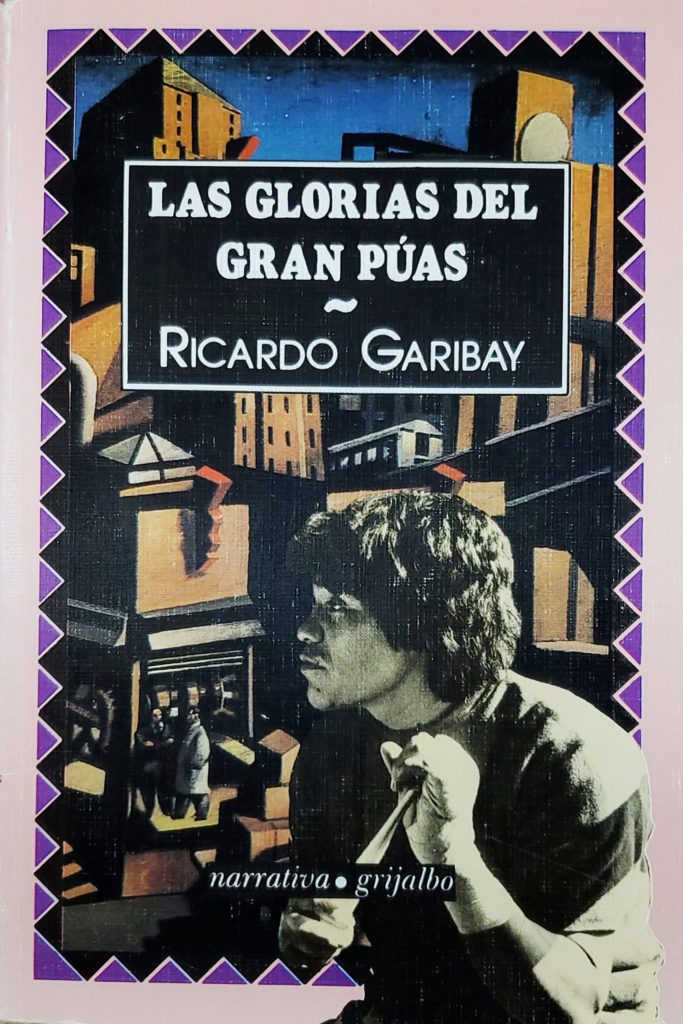
And it have to be famous that Olivares drew Garibay’s consideration not solely due to his fame and success, however due to the best way he lived his life. Olivares represented–whether or not deliberately or not–an idealized type of the Mexican macho: a proud mercenary who spent his loot with abandon, lived it up on the quick lane, indulged in pleasure no matter the place he discovered himself, sufficient money all the time at hand to fulfill his each whim. Garibay, who dabbled in beginner boxing and even sparred often, clearly discovered the character of Olivares irresistible. In Las Glorias, he introduces Ruben thus:
Sisyphus virtually actually, inexhaustible virtually, Ruben Olivares thus started that night time a brand new ascension, carrying on his again his load of girls, alcohol, marihuana, parasites, coke, vagrancy, tedium, impatience, rejection, anarchy, altercations, carnitas and corn chips, fatalisms and resignations, and prodigious pure colleges for the artwork of tearing shit up between the ropes.
In the meantime, Olivares, all the time suspicious that these round him had been in some way ripping him off, demanded of Garibay, “Okay, so, what’s happening right here? I imply, the fuck is in it for me? With all due respect…” Garibay put Ruben relaxed by making it appear as if promoting 1,000,000 copies of the e-book and splitting the ensuing mountain of cash was a fait accompli. Amazed by the promise of money with out getting punched within the face for a change, Olivares couldn’t join quick sufficient, his solely reservation to Garibay being, “if you find yourself ripping me off, you wouldn’t be the primary.” “We ended that first assembly,” writes Garibay, “as heartfelt buddies.”
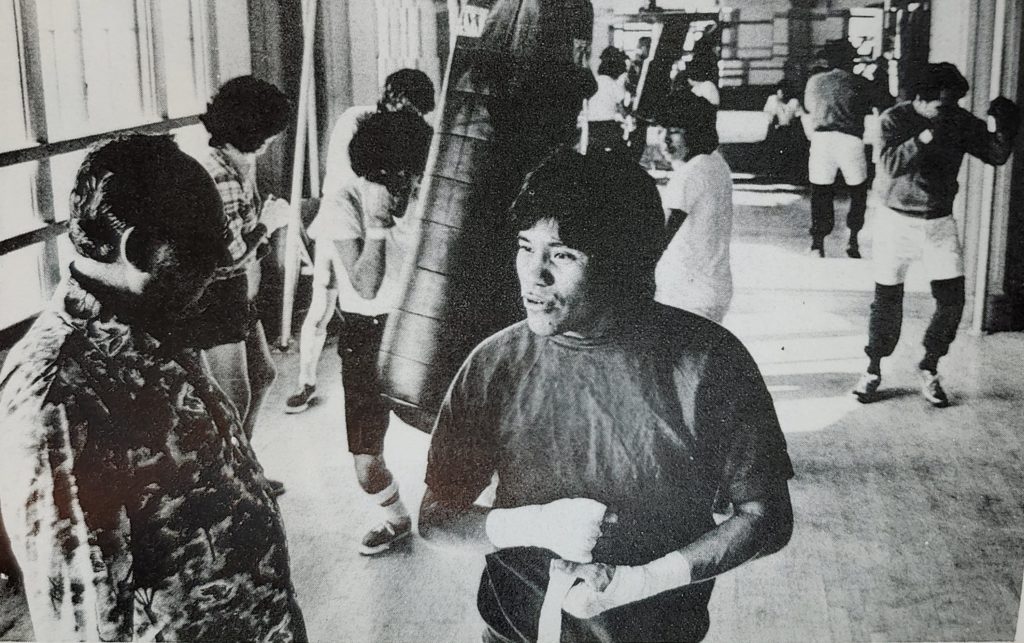
It wasn’t simply the potential fruits of the enterprise relationship that endeared the scribe to Olivares. The creator’s expertise and uncanny ear for dialogue had been instrumental in incomes him the fighter’s belief. Garibay confirmed a rare capability for placing lifelike dialogue to paper to painting characters belonging to any of Mexico’s myriad socio-economic strata. Thus, to narrate to Olivares and bond with him, Garibay engaged in cussing contests, the esteemed creator –who would earn honorary tutorial levels and turn into a touchstone for Mexican political opinion and cultural discourse–going toe-to-toe in opposition to a product of one in every of Mexico Metropolis’s most impoverished barrios and, presumably, holding his personal.
Garibay and Olivares additionally bonded in different methods. Nick Caistor noticed for The Guardian on the event of the author’s dying in 1999 that “Garibay recognized with the mannequin for his e-book. He preferred to be referred to as Child Garibay, like a boxer, and indulged in lots of the different Mexican macho myths, equivalent to laborious ingesting and womanizing.” It’s additionally laborious to overlook the extremely lifelike, if not acerbic, view of pugilism that the author and the boxer shared. Think about Garibay’s survey of the undercard boxers ready for his or her flip to step on the scales the morning of the present on the Sports activities Area:
“The pugs are simply discernible… they appear somber, pale, bitter, lean, and impatient to the intense, containing with utmost issue evident impulses of legal vengeance… they’re very younger and but they’re outdated masters in humiliation and poverty; they’re humble, a bit squint-eyed already, already a bit dumb; they’re threatened by blindness, imbecility, and a future as beggars, they usually all share the undisputed distinction of being exploited by a consumerist society.”
As for Olivares–who at one level labels his followers “asshole vultures” and his undercard colleagues “ravenous fucks”–he noticed in everybody round him one other cheat ready for his or her probability to tear him off. His managers skimmed off the highest, his promoters outright stole from him, the governments of each the US and Mexico lashed out with taxes and penalties, the customs brokers on the border he constantly crossed imposed draconian tariffs on all of the booty he introduced house after his fights, and the press solely used him for their very own nefarious functions.
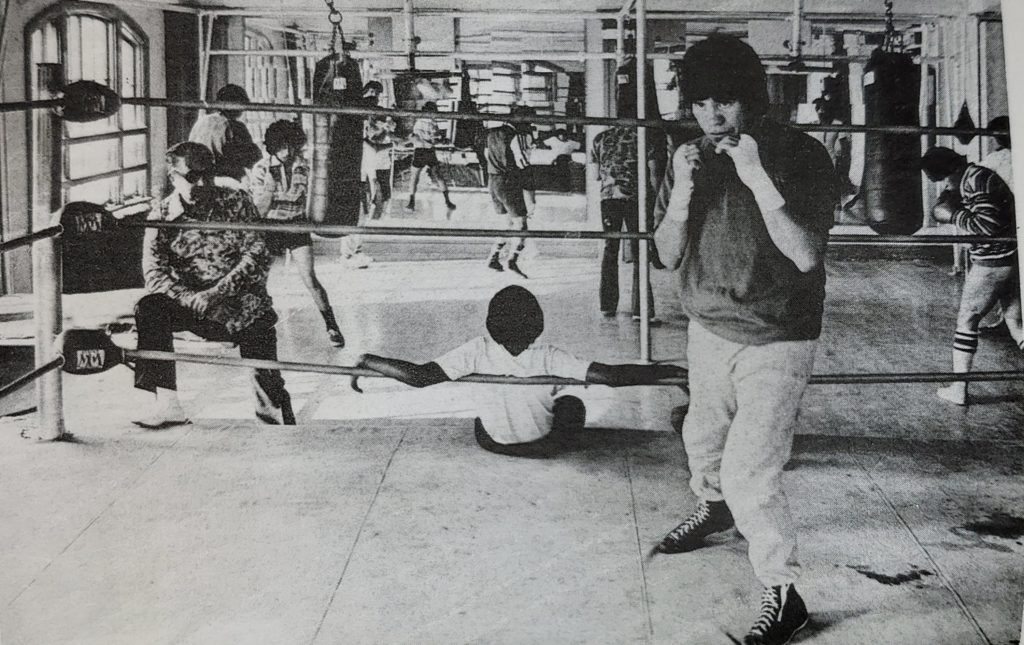
None of this, in fact, saved him from dwelling giant whereas the cash from boxing was coming in. “Why don’t you report the customs brokers to the authorities, Ruben?” Garibay asks him. “Fuck ‘em. What’s the purpose?” responds the fighter. “Let the assholes steal from me. With one other battle I get one other verify and get forward once more.” Garibay presses: “Ruben, the checks may cease in some unspecified time in the future.” Olivares–a stoic and a hedonist, his palms wrapped in gauze–responds with a useless finish: “Then I’ll go and fuck off, Garibay. What else is there for me to do?”
However the strongest bond between Olivares and Garibay can be, unavoidably, their love for boxing. As a lot as he preferred stating the battle recreation’s cruelty in direction of its practitioners, Garibay was simply as prone to wax lyrical on the “artwork of tearing shit up” within the ring. For instance, concerning a very spectacular knockout earlier than the principle occasion, Garibay writes:
“Not typically have I seen a fighter like this Tirado lash out with such ire, with such exceptional urgency for destruction. Counting on that, with out a lot else to indicate, and receiving far more than he dished out, he nonetheless imposed himself because the rounds glided by by the impetus of his cannibalistic urge for food. When he missed he spun like a pinwheel, however earlier than knocking out the one from Juarez, he folded him by whipping his shoulders and forearms. Ire in itself, sure, is a weapon, little doubt.”
Olivares’ opinion on that very same Raul Tirado is not any much less revealing:
“The child has balls, however he turns even sparring into brawls. I’d nail him, drop him, and he would preserve coming again, till I instructed him ‘No, man! Settle down. Simply rating with them, we’re not preventing.’ However he didn’t pay attention, so I let him have it. He gained’t final. The dumbass likes it. Properly, I prefer it too. I’m completely happy once I field. If I preferred it when it was only for the sake of it, I prefer it far more now. Don’t you, Garibay? Or what do you suppose, because you’re a type of who suppose?”
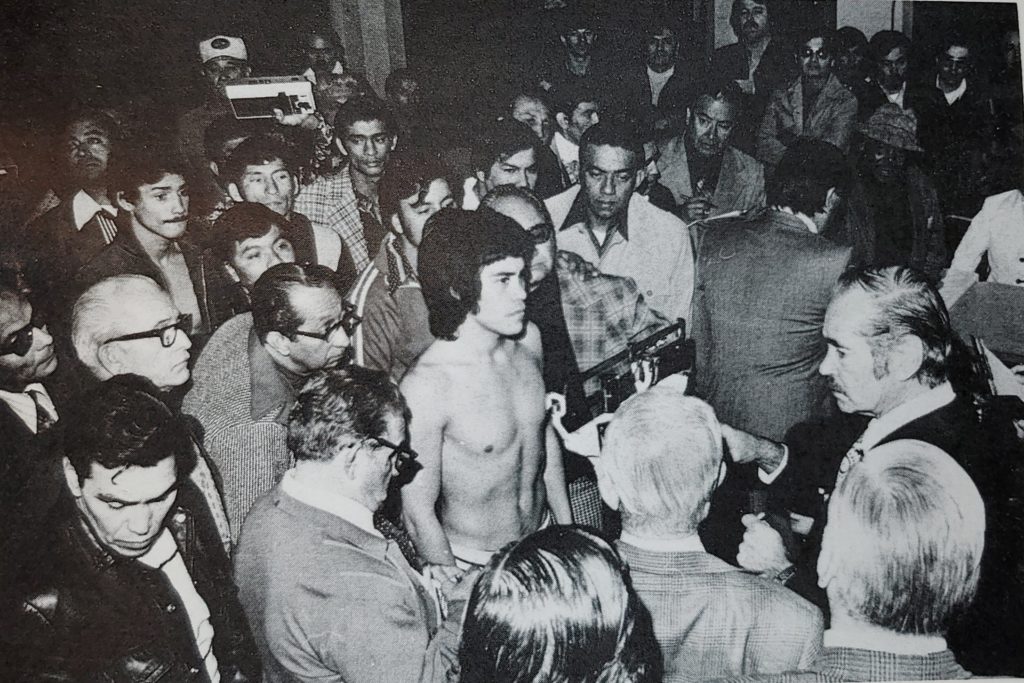
Olivares’ very nature, nevertheless, waged a relentless battle in opposition to permanence. His was a fleeting existence, all the time on the transfer, on the lookout for the subsequent excessive, both figuratively or actually. As soon as the obligations of gymnasium life and the wrestle of the weigh-in had been over, and as soon as shit had been completely torn up within the ring, life beckoned with its myriad prospects, enjoyable and launch all the time only one bar hop–or a snort–away. A lot in order that Garibay had hassle discovering him in Mexico Metropolis after the battle in LA, after they had been presupposed to be engaged on the e-book. After spending 5 days trying to find him, Garibay is instructed by a member of the entourage that Ruben “may be on the airfield.”
–He may be on the airfield–I repeated. What’s he doing … Is he studying to fly?–No, no. With the snow–mentioned Nacho.–The snow…–With the carbonate.–With the carbo… With the carbonate?–I requested.–Properly, come on, man, catch up.–Carbo… Oh, okay. Sure, effectively, let’s go to the airfield.–It’s higher if I am going on my own, sir. In the event that they see you coming we’ll by no means discover him. I’ll go tomorrow and convey him to your newspaper workplace. Twelve o’clock, proper there.
However the nice champion is a no present and the promising enterprise enterprise between heartfelt buddies is now in peril of going the best way of one in every of Ruben’s discarded tequila bottles because of the fighter’s endless quest for the subsequent thrill journey and the subsequent journey, this realization forcing Garibay to return to phrases with the difficulties of working with somebody as fickle as Olivares. The flip of occasions dealt a remodeling blow to Garibay’s meant mission of a biography of the best Mexican fighter, molding it as an alternative right into a tough and tumble chronicle of Garibay’s efforts to strategy the unapproachable Olivares, in addition to a blow-by-blow account of the transformation of the author’s regard for his topic, from adulation and respect, to exasperation and disdain.
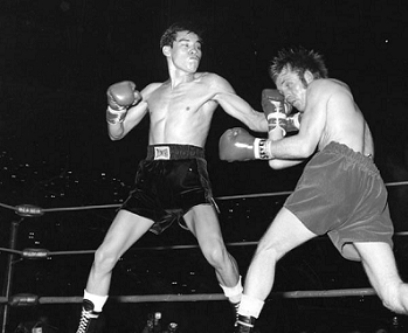
When attempting to trace down the fighter, Garibay has no hassle choosing up clues from scattered members of his posse. If something, there are too many clues: Ruben is at this level a ghost, with everybody claiming to have seen him, however all equally unable to obtain him when it counts. The result’s Garibay arriving at every scene one beat too late, with Olivares having already moved on to the subsequent factor: one other bar, one other lady, one other coke-snorting session, one other jet transporting him from California to Mexico Metropolis, or vice versa. And when Garibay lastly nails down Ruben at an L.A. restaurant, it is just to see him flee the desk whereas chasing yet one more piece of ass, by no means to be seen once more that night time as Olivares’ “pure colleges for the artwork of tearing shit up” had been clearly not unique to the roped sq..
Garibay would keep late into the night time at that restaurant, much less out of hope that Olivares would return than to have dinner and hang around with the champion’s normal companions. Amongst them was Enrique Garcia, a fighter and perennial fall man who at completely different factors duly padded up not solely Olivares’ file, however these of Alexis Arguello and Ernesto Marcel. When a drunk Garibay prods an equally drunk Garcia for his opinion on “El Puas,” Garcia has this to say:
… he’s inattentive, and he’s received a mood, and he’s a drunk, and he’s a drug addict, and he’s a womanizer, and he’s happy-go-lucky, and he’s abusive, and he’s a tyrant, and he’s a lazy fuck, and he’s not truthful, and he’s a pushover, and he’s filthy, and he’s a clusterfuck… Like me, I’m like that too. Like all of us right here. Even such as you, I believe, as a result of you possibly can outline lots of people the identical approach, proper? I imply, until you might have a greater approach to take a look at it.”
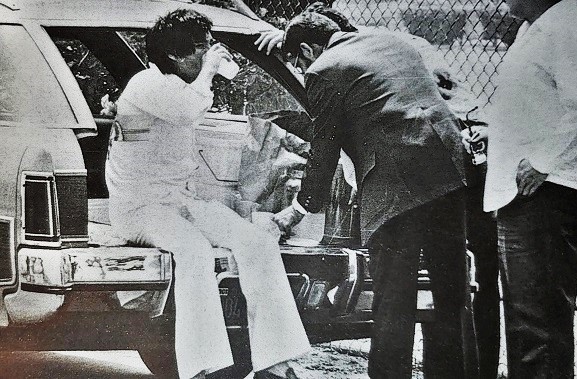
Finally, Olivares got here round to hang around with Garibay once more, the 2 spending at the very least one full day collectively. However when the author lastly had the complete consideration of the fighter, Olivares had little to supply however tales about individuals asking him for cash or getting him concerned in varied schemes and plans. Ever the free-wheeling man, Olivares went together with a few of these misadventures for kicks, often moving into hassle for it. The fighter additionally took the author on a tour of “La Bondojo,” Olivares’ beloved neighborhood, the place they visited cantinas and the house of his mom. What Garibay discovered there was poverty and decay, in addition to Olivares’ disinterest in his youngsters and his spouse, who had been nonetheless surrounded by squalor regardless of Ruben’s success.
It’s an anticlimactic ending to a whirlwind journey, however one which foreshadows what would turn into of Olivares after the boxing gravy practice got here to a closing cease. Inevitably, he and Garibay would have a falling out over–what else?–cash. Regardless, Las Glorias del Gran Puas would nonetheless go on to be printed in 1979 and even be tailored right into a film wherein Olivares performed himself.

The e-book’s title referring to Olivares’ late profession struggles and private misadventures as “wonderful” doubtless grew to become extra of an ironic stab on the legendary fighter by the aggrieved creator when publication time got here round. There’s little doubt that Garibay–very similar to each Mexican on the time–admired Olivares tremendously for his ring achievements, however there’s additionally little doubt that the fixed frustrations of working with him, to not point out the eventual monetary dispute, put the creator in a pugnacious temper at any time when he thought again on the ordeal of attempting to put in writing this e-book.
As for “El Puas“ himself, no matter cash was produced from the e-book and the film vanished rapidly. The identical goes for the earnings Ruben accrued from the remainder of his boxing profession, which he extended for nearly twelve years after his assembly with the Lupikanete wannabe. His failed fifth championship run ended with him knocked out by Jose Cervantes in an excellent bantamweight eliminator, and in 1979 his closing probability at a world title noticed him battered everywhere in the ring by Eusebio Pedroza, who was virtually a decade youthful, earlier than Ruben’s nook threw within the towel. He saved preventing in fact, his closing ring look a knockout loss in 1988.
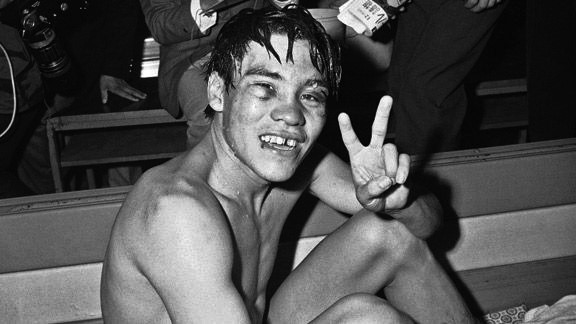
However even when Olivares had in some way discovered a option to preserve at the very least among the cash he made within the ring, it’s laborious to think about him ever leaving “La Bondojo.” Olivares all the time returned to his cherished neighborhood when he grew bored of the whole lot else. Whereas the cash was coming in laborious and quick he purchased land, homes, and companies for himself and his kinfolk, none of it removed from the barrio. As time glided by and age, ingesting, smoking, ladies and the whole lot else caught up with him, the checks from boxing diminished in dimension after which disappeared altogether. In the meantime, a lot of his investments failed, the results of somebody ripping him off, or his personal failure to carry out due diligence, or typically simply plain dangerous luck.
The “the place is he now” tales that also often pop up on Mexican media about Olivares invariably present a big-bellied, smiling outdated man, completely happy to speak about his days as world champ. Not way back he turned one such piece right into a Craigslist advert, saying he was keen to half with one in every of his title belts for 1,000,000 {dollars}. He might actually use the cash, he mentioned, as a result of “the hardest, bloodiest fights are usually not within the ring, however exterior of it.” Till lately it proved comparatively simple to trace down Olivares at a Mexico Metropolis mercado, the place the champ has a everlasting spot to promote assorted merchandise and boxing memorabilia, charging a premium for autographed gadgets.
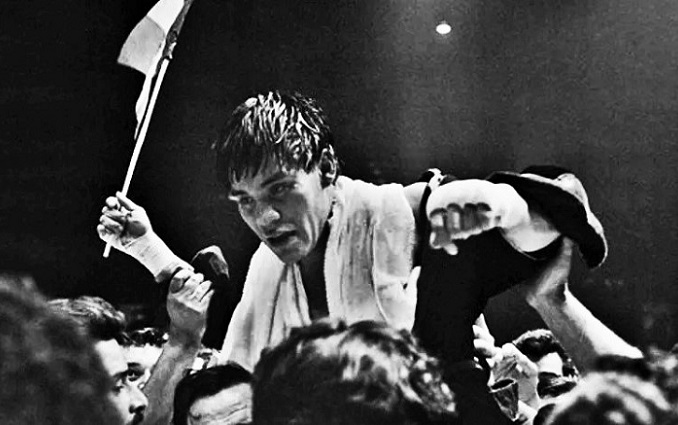
As for Garibay, the battle between realism and romanticism that holds hostage a portion of the mind of each ardent battle fan got here to a stark and bitter finish for the creator in his outdated age, with a decisive verdict:
“The literary harvest of boxing is [nothing but] financial and ethical distress [and] despair. The fighter finally ends up because the pulp of a villainous society; the waste of publicists and punters. There may be not a single case of happiness, of lucidity, of triumph, of a boy in his prime fulfilling his hopes. Does the author need a actually dramatic story … that’s actually crushing and painful? There it’s, to be picked from 1000’s of center aged males, strabismic, shocked, of slurred speech, of mutilated tongue, of demeaning occupation … There are tales by the 1000’s, all of them equally arid or insignificant, all of them loaded with the tedium of giving and taking punches, and solely that.
“What’s the level of witnessing this technified animality … that even Homer, twenty eight centuries in the past, regarded with disdain? … Even I, to raise my boxing literature, have resorted to disastrous endings, which I’ve come to study is the final rule derived from the existence of boxers. From my meager earnings I’ve given them handouts which they’ve thanked to abjection; they, who of their nights of glory delivered elation to the shabby plenty of staff and prostitutes who adore them.”
–Rafael Garcia


















